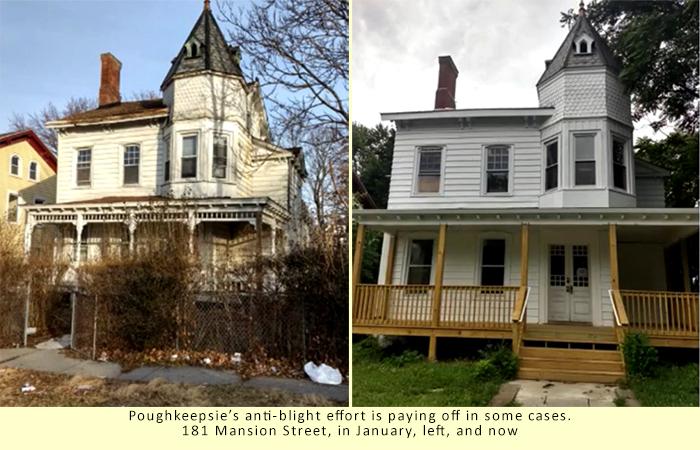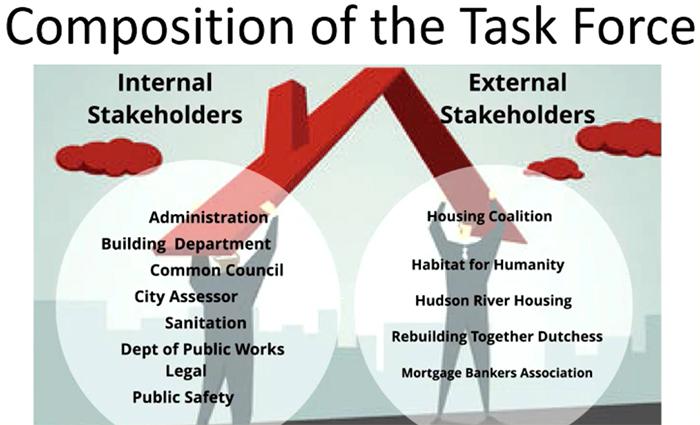POUGHKEEPSIE – The City of Poughkeepsie has significantly stepped up its effort to deal with several hundred blighted properties. Helping the effort is the state $200,000 zombie property grant announced late last week.
During a lengthy presentation during Monday night’s common council meeting, City Administrator Marc Nelson said just since January, the number of blighted properties still on list is down from 760 to 480. That, he said, comes through a Blight Task Force.
“What we’ve learned as that in order to attack blight in our city, we need the help of multiple stakeholders and that’s what this task force does,” Nelson said. “It takes those properties out of the normal realm of city operations and moves then over to the jurisdiction of the task force where you’ve got department heads and outside stakeholders who have the authority and the decision-making ability to say ‘we are going to do this and we are going to do that’ and those decisions are now made in a collaborative approach with our partners.”
The stakeholders include several department heads, some council members and several outside agencies, among them, Hudson River Housing, Habitat for Humanity and a representative from the Mortgage Bankers Association.
Nelson said bringing those resources together is letting them deal with groups of properties, including going after each one individually.
Corporation Counsel Paul Ackerman, also on the task force, said there is a clear timeline of several steps in dealing with individual properties. If a property owner does not comply with city violation notices, court is a last resort, where the options are down to three: negotiate a settlement, reach a civil compromise, or go to trial.
Fifth Ward Councilwoman Yvonne Flowers said problem property owners are beginning to get the message.
“When they’re getting violated and have to go court, having violations, its additional expense for them,” Flowers said. “So, to be able to work with them to make sure they get back in compliance, without having to pay those penalties, or so, does help, and they also realize, too, there’s a message going out, stating that ‘you know, we’re on top of this now’.”
Nelson said they hope to stay on top, even when the 18-month timeline for the latest $200,000 grant runs out. Even though the majority of blighted properties are not tax delinquent, Nelson hopes the anti-blight effort will become sustainable, if they get enough of the remaining properties back on the tax rolls.









